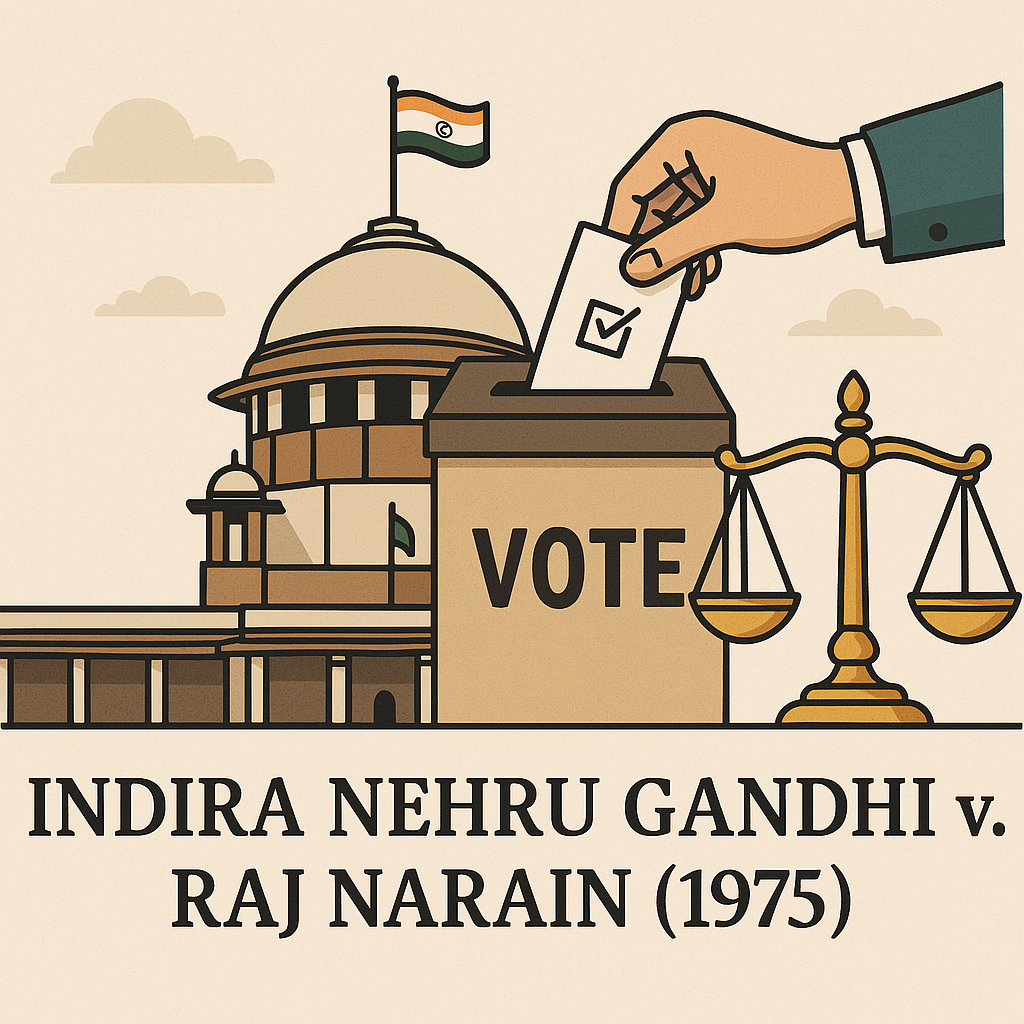Indira Nehru Gandhi v. Raj Narain (1975) – Elections, Equality & the Basic Structure
Summary:
This case highlighted the importance of free and fair elections in a democracy and reaffirmed that even constitutional amendments cannot override the basic structure of the Constitution.
Background:
The case arose from one of the most politically charged moments in Indian history. In 1971, Indira Gandhi won a sweeping majority in the Lok Sabha elections. Her opponent in the Rae Bareli constituency, Raj Narain, challenged her victory, alleging electoral malpractices under the Representation of the People Act, 1951.
In 1975, the Allahabad High Court found Indira Gandhi guilty of electoral misconduct and declared her election void. This verdict disqualified her from holding office and triggered a political crisis.
Just days later, Indira Gandhi declared a state of Emergency in India. During this period, Parliament passed the 39th Constitutional Amendment, inserting Article 329A, which:
-
Declared that elections of the Prime Minister and Speaker could not be questioned in any court.
-
Retrospectively validated Indira Gandhi’s election, overruling the High Court judgment.
This amendment was directly challenged before the Supreme Court.
Legal Issues Raised:
-
Can Parliament pass a constitutional amendment that places certain elections beyond judicial scrutiny?
-
Does such an amendment violate the basic structure of the Constitution?
-
Is the right to free and fair elections part of the Constitution’s core principles?
Supreme Court’s Key Observations:
-
Violation of Basic Structure: The Court struck down Clause 4 of Article 329A, stating that placing the Prime Minister’s election beyond judicial review violated the basic structure of the Constitution.
-
Free and Fair Elections as a Constitutional Guarantee: The Court ruled that free and fair elections are an essential feature of democracy and part of the basic structure. Any law or amendment that damages this principle is unconstitutional.
-
Limitation on Parliament’s Amending Power: Although Parliament has wide powers under Article 368, it cannot destroy essential constitutional values, including equality, rule of law, and judicial review.
-
Retrospective Validation Is Unjust: The amendment, made solely to protect one individual’s seat of power, was seen as a misuse of constitutional authority.
Impact of the Judgment:
This case stands as a strong reminder that no one—not even the Prime Minister—is above the Constitution. It reinforced the judiciary’s role as the guardian of democratic values, and further cemented the Basic Structure Doctrineestablished in Kesavananda Bharati.
The judgment also deepened public understanding of constitutional supremacy and set a precedent that constitutional amendments are not immune from judicial review if they breach the core values of the Constitution.

